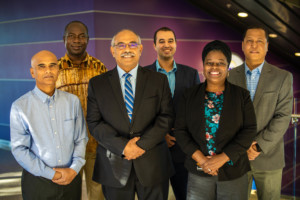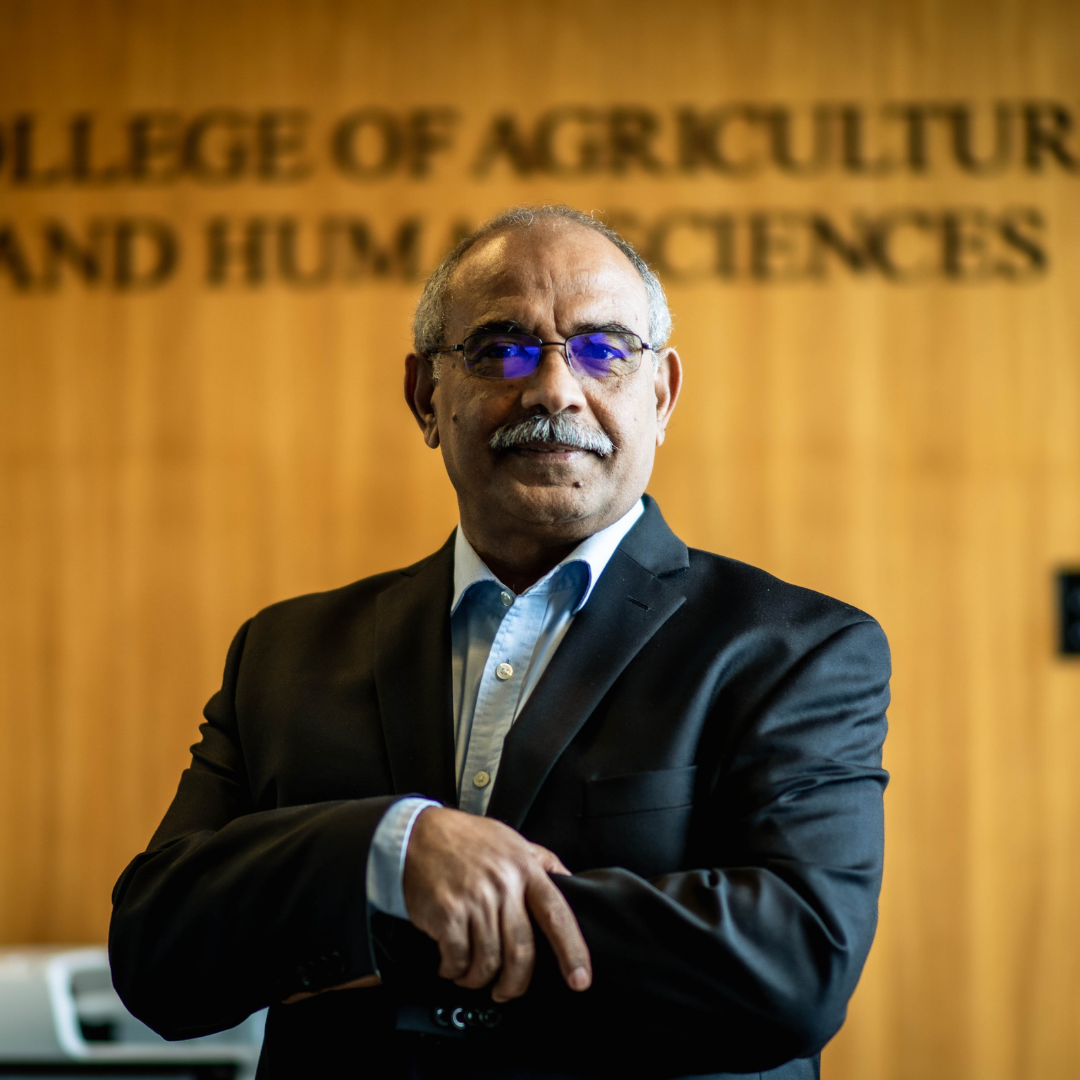PRAIRIE VIEW, Texas (December 6, 2021) The USDA National Institute of Food and Agriculture-Agriculture and Food Research Initiative (AFRI) awarded Ali Fares, Ph.D., $749,719 to address needs in Smart Agriculture System and Food Safety through his project GetAgSmart: Building Capacity In Smart Agricultural Technologies For Underserved Communities.
Smart agriculture is an innovative concept that uses technology to increase quality and production in farming environments.
“This project will support the research program of the team. I am personally excited that it will also provide the academic program with funding to introduce smart agriculture modules to courses, to hire undergraduate and graduate students to conduct research, and give them opportunities for hands-on experience in these topics,” shared Fares. His research interests include climate-smart agriculture, watershed hydrology and management, and natural resources management.
Fares is leading a team of ten, six from Prairie View A&M University (PVAMU) and four from Texas A&M University (TAMU). Many of whom are internationally known experts in their respective areas, including TAMU AgriLife Research Assistant Professor Dr. Janie Moore, in the Biological and Agricultural Engineering Department at TAMU.

Front Row (Left to right): Ram L. Ray, Ph.D., P. E., Associate Professor and a member of the Natural Resources and Environmental Sciences Group, Ali Fares, and Rukeia Draw-Hood, Ph.D. Program Leader, 4-H Youth Development. Back Row: Peter Ampim Ph.D., Assistant Professor and a Member of the Natural Resources and Environmental Sciences Group, Ahmed Ahmed, Ph.D., Assistant Professor, Computer Science, and Ripendra Awal, Ph.D., Associate Professor and a member of Resources and Environmental Sciences Group.
Co-Principal Investigators for the project from PVAMU are Peter Ampin, Ripendra Awal, Ram Ray from the College of Agriculture and Human Sciences, Rukeia Draw-Hood from Cooperative Extensions, and Ahmed Ahmed from the College of Engineering- Computer Science.
“This collaboration between Dr. Fares’ team at Prairie View A&M and with TAMU AgriLife is a strategic partnership between our universities. Their study will incorporate innovation, technology, education, and agriculture to serve those in food deserts, impacting food insecurity and farming challenges of underserved communities,” said Magesh Rajan, Ph.D., P.E., MBA, Vice President, PVAMU Research & Innovation. “With the challenges of global warming and supply-chain challenges creating shortages and delays in food deliveries, their research will be pivotal in helping to discover a better way, a smarter way to harness innovation to improve access to fresh food and produce and training students through cutting-edge technology that will give them skills to be well-qualified candidates in a growing career field.”
The team will introduce modules in at least eight courses to respond to urgent needs in enhancing smart agriculture curricula. As a result, students will be trained in skills that are in high demand now and in the future. Some student participants will also use aspects of the project to conduct their own research as part of their graduate degrees’ requirements.
AFRI is America’s flagship competitive grants program providing funding for fundamental and applied research, education, and extension projects in the food and agricultural sciences. Securing their funding on a first attempt is worthy of the recognition Fares has received. With this funding,
“I’m expecting to strengthen my academic program to address the urgent needs of the underserved population and farming communities in these new areas,” says Fares.
Earning extramural funding, both federal and non-federal, to support faculty research and academic activities is one of the foremost parameters used in evaluating the strength of universities and consequently ranking them. This project moves PVAMU closer to its goal of becoming an emerging research institution. Further, it will help improve its ranking among other universities while attracting additional funding opportunities and quality faculty and students.
For Ali Fares and the team, it is a significant enhancement to the current program to “work on state-of-the-art topics (such as smart agriculture, virtual reality, Internet of things, big data), and to have the ability to train and empower our graduate and undergraduate students with needed skills for jobs of the future.”
By Karen B. Cotton

